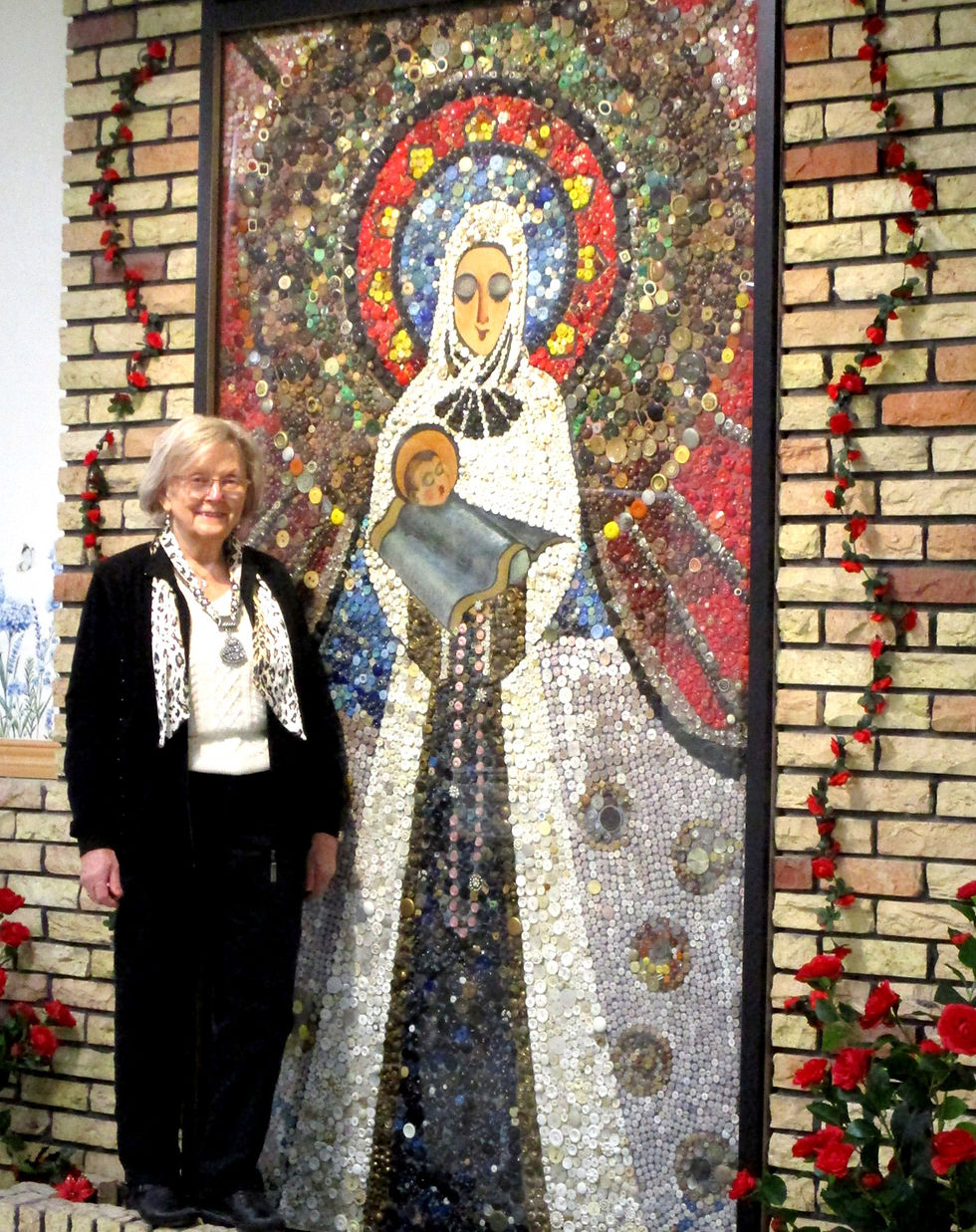Helping inmates find a better path
- Sr Perspective

- Mar 30, 2023
- 6 min read
Two women helping to make a difference in the lives of inmates
By Patricia Buschette

Most who drive past the Renville County Administration and Jail Building in Olivia have little knowledge of the work behind its walls. For Linda Howard of Renville and Kim Lippert of Blomkest, it is not only a place of work, it is an opportunity to make a valuable difference in the world. Linda and Kim work with inmates in making the transition from incarceration to a better life.
While many refer to those incarcerated at the jail as inmates, Linda and Kim refer to them as their students. Both came to this role well-prepared from previous careers as educators.
“I got my bachelor’s degree at Concordia in Moorhead, and a master’s degree at St. Mary’s, Minneapolis,” Linda said, “and taught in Truman (Minn.,) for 30 years. I started with biology and sciences, and went back for physics and middle school.” When Linda married and came to Renville County, she wanted a part-time job, so she checked into Adult Basic Education (ABE). “My first response was that I thought it would be interesting,” she said, “and something I would enjoy doing.”
While Linda wanted to just work part-time, the schedule was becoming more than she anticipated. Fate was to step in when she attended a fundraising event in Renville in 2017 and encountered her friend, Kim. They talked about Linda’s job.
“I thought her job at the jail was soooo interesting,” Kim said. Later, she encountered Linda once again at Bart’s Place in Renville. “She asked me how I was and I told her I was going to retire that spring. She said, ‘You are? Would you…?’”
“I cut her off and said, ‘Yes, I would!’”
“It was those chance encounters with Kim that was a Godsend,” said Linda.

Kim’s education and career track was a perfect fit. Her heart for agriculture was evident in high school. She was elected Minnesota’s first female state FFA President in 1976-77, graduated from Willmar Community College with an A.S. in Animal Science in 1978, and from the University of Minnesota-St. Paul with B.S. degrees in Animal Science and Agriculture Economics in 1980. After college, an opportunity to teach in the Agriculture Department at Willmar Vo-Tech, later known as Ridgewater College, was the beginning of a 36-year career in agriculture education with a brief stint in 4-H Extension.
“I was an instructor in the agriculture department over 30 years, and served as the Department Chair for 10 years,” she said. “I taught in the resource center providing student support, and taught courses for women encouraging them to consider nontraditional careers.”
Now in retirement, she was ready for a challenge, spending time with her family, providing support for children with full-time jobs, and spending time with grandchildren.
As Kim prepared for her new challenge at the Renville County Jail, she met with Ned Wohlman, then the program coordinator. She remembered Ned’s encouragement and his observation, “Do you hear how quiet it is here? That’s due to the great staff and the programming that takes place.”
Kim shadowed Linda for a couple of weeks, got licensed in Adult Basic Education in the summer of 2019, and began working at the jail in August 2019.
What is their role? “We are education instructors in any area that would help them in their life; earning a GED, resume development, career counseling, digital literacy, college search, and money management. They can practice for a driver’s test and for a CDL (Commercial Driver’s License). We have available to them a web-based entrepreneurship program that helps in the development of a business plan. We design or find something for them, based on their needs and areas of interest.”

Sometimes they simply need someone who will listen to them.
“I had not known what to expect,” Linda explained. When I began 8 1/2 years ago, I designed the program, which was fun. “Now we complement one another on our strengths.”
“I focus on GED preparation,” Linda said, “and we both do digital literacy.”
Kim’s background in employment planning helps with resume preparation and job search. “I also help with college search, FAFSA (Free Application for Federal Student Aid),” she said.
One of the greatest challenges encountered is helping people get through a GED program before they leave – sometimes there isn’t time. Without a doubt they have been successful. “We had our 150th GED graduate since 2014,” Linda said with pride. “It is wonderful when they finish.”
But sometimes there are disappointments.
“Linda and I were both brokenhearted when a recent student completed all but one test before he left,” said Kim. “He missed passing the last test by one point but talked about what he had accomplished, and how he wants to live differently.”
The program is not mandatory and their students are not required to attend sessions. Either the jail staff or the student lets us know when services or help is requested, and we do what we can to help, they explained.
Time constraints can be difficult. County inmates are incarcerated up to a couple of months, and often Federal inmates can be here 6-9 months, but no more than a year. The age group frequently represented are those 20, 30, and 40 years old. Their oldest GED graduate was in his 50s and he “zipped through it.”
Both Linda and Kim are adamant about their understanding of the inmates of the Renville County Jail.
“We found that they are just regular decent people who have gotten themselves tangled up in illegal things,” said Linda. “We have never been disrespected or afraid. It is not what most people think it is.”

Linda and Kim value their students. “They are called by name, treated with dignity, and respect,” Linda said. “There is no discussion about the crime that brought an inmate to the jail. We simply don’t ask.”
Inmates may have experienced traumatic childhoods and teen years. At times, there may have been abuse in their early years.
“When I consider the stories I have heard, I don’t know if I would be a survivor,” said Linda.
It is not surprising that the general public is unaware of the circumstances or programs of the Renville County Jail.
“Neither one of us had a clue what it was like in a jail,” said Linda.
The two acknowledge that some members of the community question the expense of the jail. Education services and GED testing are paid by the inmates themselves through commissary funds that accumulate from items purchased by the inmates. ABE covers teachers’ compensation.
“There are those that come back after release on parole,” Linda said. “They tell us they were sober for nine months. Most people don’t understand how difficult it is as they return to some of life’s tests that they dealt with when convicted. If they do not follow the terms of their probation; if they don’t call, don’t show up for a meeting or show up in court, they return. They didn’t necessarily commit a new crime.”

The two do not work without support. Melissa Swyter is the Assistant Jail Administrator, and is the GED tester. “All of the Corrections officers are very patient and cooperative,” Linda said. “They are very protective of us.”
They can also serve as a go-between, advising the two if there is a potential problem with an inmate who is going through a difficult situation and can advise them not to meet with the inmate.
There are opportunities for the general public to be of assistance to the program, the two explained. The program accepts gently used clothing; hats and mittens, or shoes. If a federal inmate is brought to the jail in the summer, they may be released during the winter season and don’t have suitable clothing. Books can also be donated but are reviewed before placement in the jail library.
Grace Community Church of Olivia does a Wednesday church service in the gym for which there is good attendance, Linda said. On occasion, they have Bible study. The Fortress from Willmar, works with men who go there when released for faith-based assistance with addiction. Women can apply, are screened, and can go to a halfway house. There is a program person who works with that, and can help with housing when inmates are released.
There is flexibility in their schedule, and the two are committed to a total of three days a week.
“Linda and I share this position, each typically working 1 to 2 days per week. We cover for each other’s hours when one is ill, has appointments, or on vacation. It’s extremely flexible,” Kim said.

For Linda and Kim, the counsel of Ned Wohlman, the Jail Administrator, is the cornerstone of their work. In Ned’s words, “We have a choice. We can treat inmates like many jails do, and by the time they leave, they are discouraged and oftentimes angry and frustrated. Many of these people live in Renville County. They might well be your neighbors. Or, we could treat them like we would want to be treated. They too are released into our communities but are released with hope for the future and the encouragement to do what is right. They too might be your neighbors.”




Comments